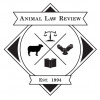Volume Twelve, Issue One, 2005-2006
INTRODUCTION
Congressman Christopher Shays
ARTICLES
MAN[’S BEST FRIEND] DOES NOT LIVE BY BREAD ALONE: IMPOSING A DUTY TO PROVIDE VETERINARY CARE
Phyllis Coleman
Although all states outlaw cruelty to companion animals, most jurisdictions only prohibit causing unnecessary suffering as well as failure to provide food, water, and shelter. They do not address whether owners must obtain veterinary care. Even the few statutes that mention such treatment do not define exactly what kind and how much is required. This article highlights the deficiencies in these laws. It argues that keeping pets creates an obligation to get them medical treatment when they are sick or injured and also explains why such a duty is necessary. In addition, it proposes uniform legislation that creates an explicit obligation to provide health care to companion animals, imposes a duty on veterinarians to report cruelty, and establishes strict penalties for violations
Katherine A. Burke
In 2004, the Colorado legislature amended its wildlife statutes, formally recognizing the existence of private, nonprofit wildlife sanctuaries under the jurisdiction of the Colorado Division of Wildlife (CDOW). Opponents to the 2004 amendments and CDOW staff have repeatedly expressed concerns that private sanctuaries should not be authorized in the absence of regulations and enforcement mechanisms sufficient to protect the animals and the people who come into contact with them. In implementing the sanctuary statute, CDOW has followed a familiar pattern, relying on the accreditation program of the American Association of Zoological Parks and Aquariums (AZA) to provide the basis of its regulations. In doing so, CDOW has failed to understand that the AZA standards are wholly inappropriate for sanctuaries; they are inadequate to protect the safety of animals and humans; and they are overly burdensome and even diametrically opposed to the status and goals of private, nonprofit wildlife sanctuaries. Instead, CDOW could have acknowledged the stringent, comprehensive, extensive standards promulgated by The Association of Sanctuaries (TAOS), which are carefully tailored to the operations of sanctuaries. This article considers the plight of Colorado wildlife sanctuaries, which is by no means peculiar to the state of Colorado, and carefully examines the standards promulgated by the AZA and by TAOS. The article concludes that the TAOS accreditation program would have provided a significantly better basis for sanctuary regulation, and that by failing to take advantage of this, CDOW has missed an important opportunity to create a nexus between trust, compassion, and regulation.
REPARATIONS AS A BASIS FOR THE MAKAH’S RIGHT TO WHALE
Russell C. D’Costa
The grant of whaling rights to the Makah Native-American tribe may be interpreted as a form of reparations owed to the tribe from the United States government. History details the many wrongs inflicted on the Makah by the government, and these wrongs therefore serve as the basis for reparations. Considered first is a brief review of recent attempts by the federal government to compensate Native Americans for past wrongs. Next, an examination of the history and culture of the Makah tribe provides a greater understanding of the significance of whaling to the Makah. The essay then expounds on why permitting the tribe to engage in whaling is an acceptable form of reparations. Finally, arguments against the Makah’s whaling are examined and critiqued.
COMMENT
Mariyetta Meyers
A “best science available” directive appears in a variety of environmental law statutes. Although seemingly clear, this directive has created an abundance of litigation with various plaintiffs challenging agency decisions under the Administrative Procedure Act’s (APA) arbitrary and capricious standard of review. The courts’ review of the agency decisions based on such science largely depends on the various ways in which the “best science available” directive is written in the particular statute. That is, the more specific the congressional mandate, the less latitude the agency has in implementing congressional will; the broader the statutory language, the more breathing space the agency enjoys. This in turn relates directly to the plaintiffs’ ability to bring about successful challenges to agency regulations. The less specific the statutory language defining what constitutes best science available, the more leeway is available to the agency, and the less likely the plaintiffs are to prevail on a challenge that agency actions are arbitrary and capricious under section 706 of the APA. Since agencies are given broad discretion in their decisions - even those based on science - this Comment argues for clear congressional guidelines in best science available directives, because only such guidelines would ensure greater agency compliance with congressional intent, give courts more direction in reviewing agency decisions under the APA, and, in the long run, maximize the scientific integrity of agency rules and decisions. In the environmental and wildlife protection contexts, this will ensure that agencies achieve Congress’s objectives, resulting in greater species protection.
Animal Law Review is located in Wood Hall on the Law Campus.
MSC: 51
Editor in Chief
Suzannah Smith
eic-animallaw@lclark.edu
Managing Editor
Aaron Kline
me-animallaw@lclark.edu
Executive Editors
Bailey Grinter
Macaela Burke
ee-animallaw@lclark.edu
Animal Law Review
Lewis & Clark Law School
10101 S. Terwilliger Boulevard MSC 51
Portland OR 97219
